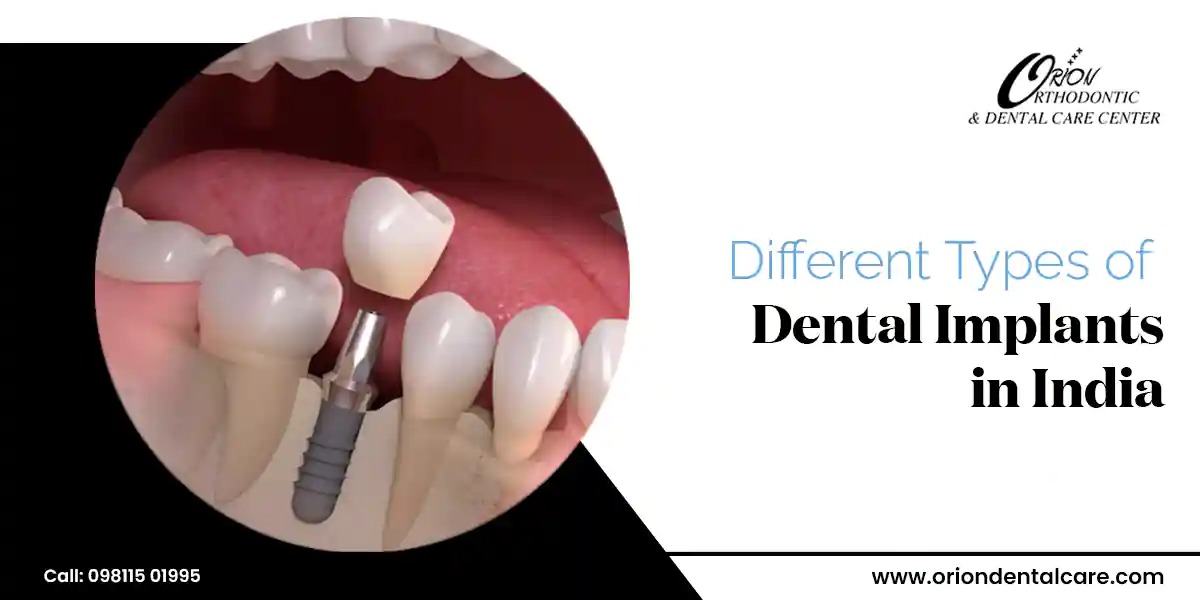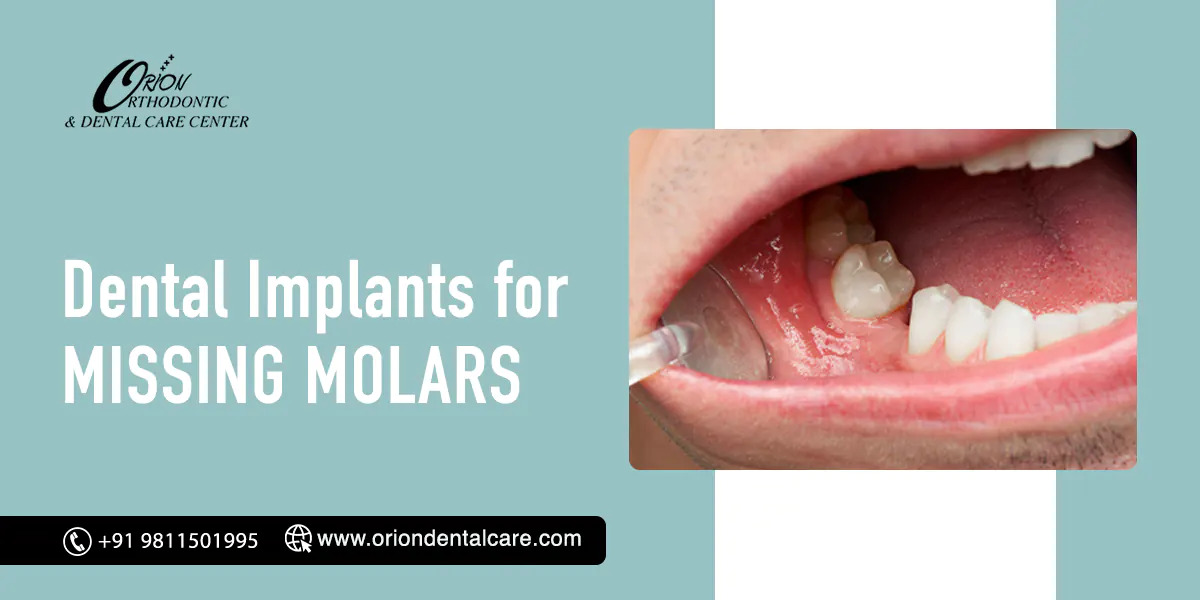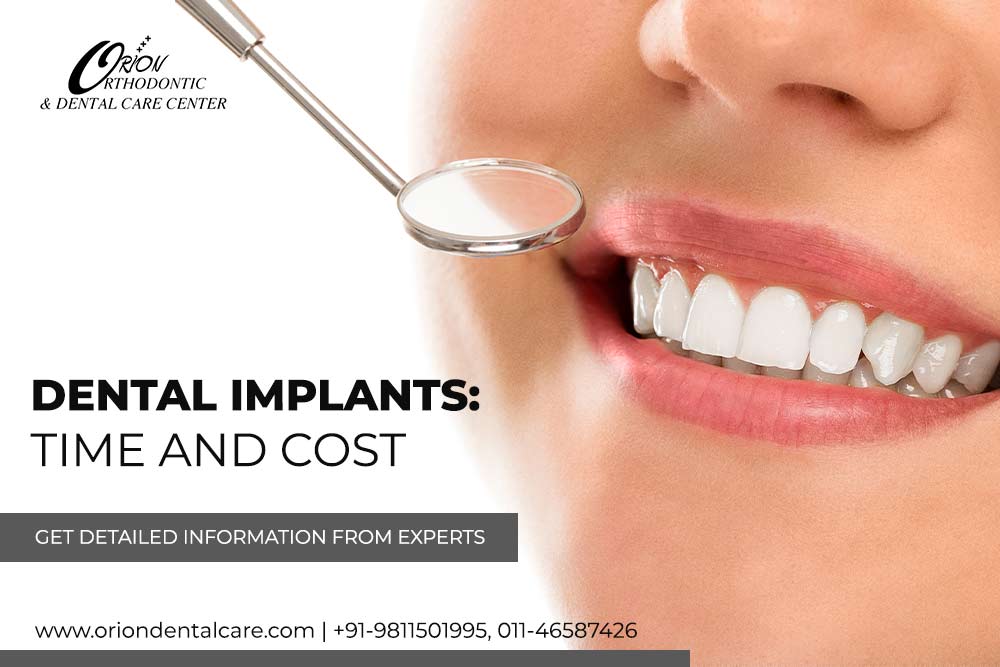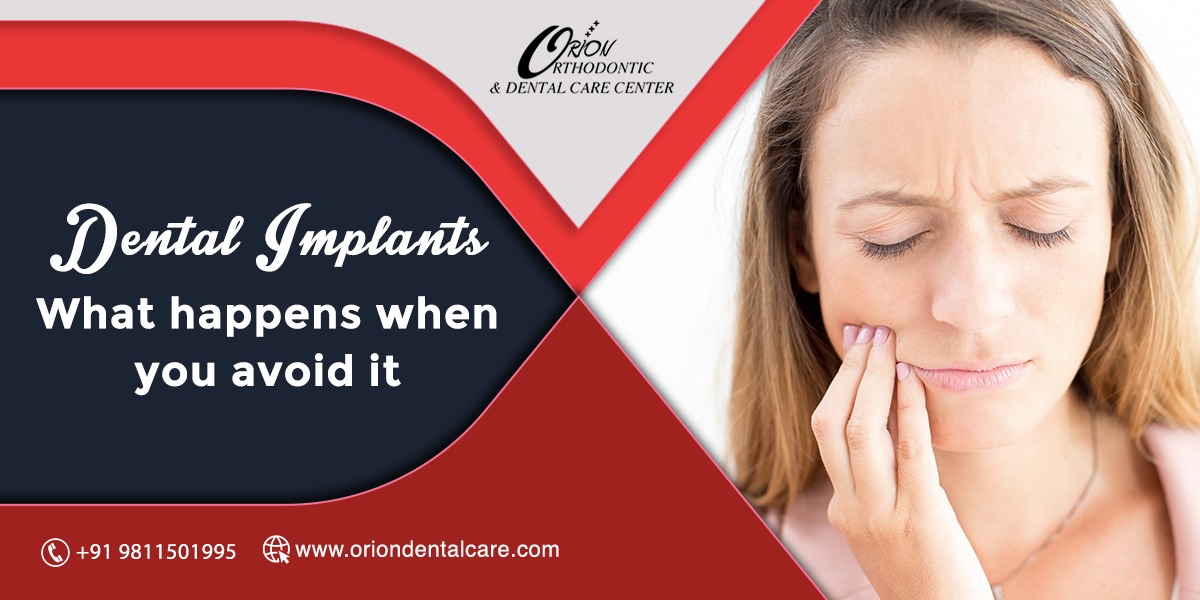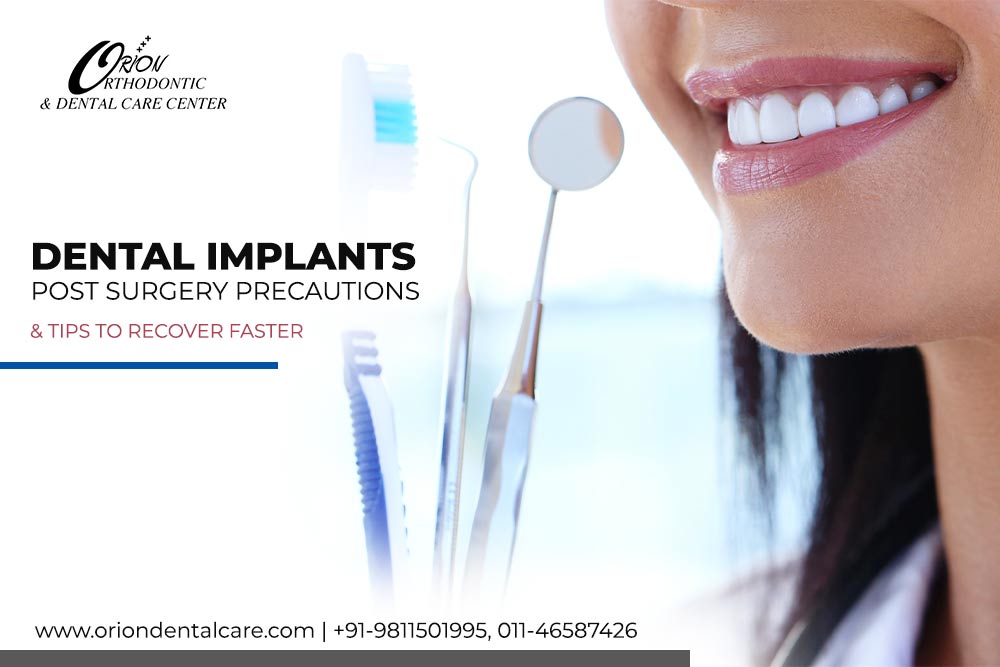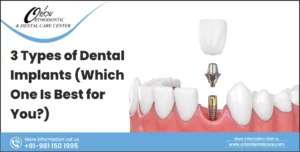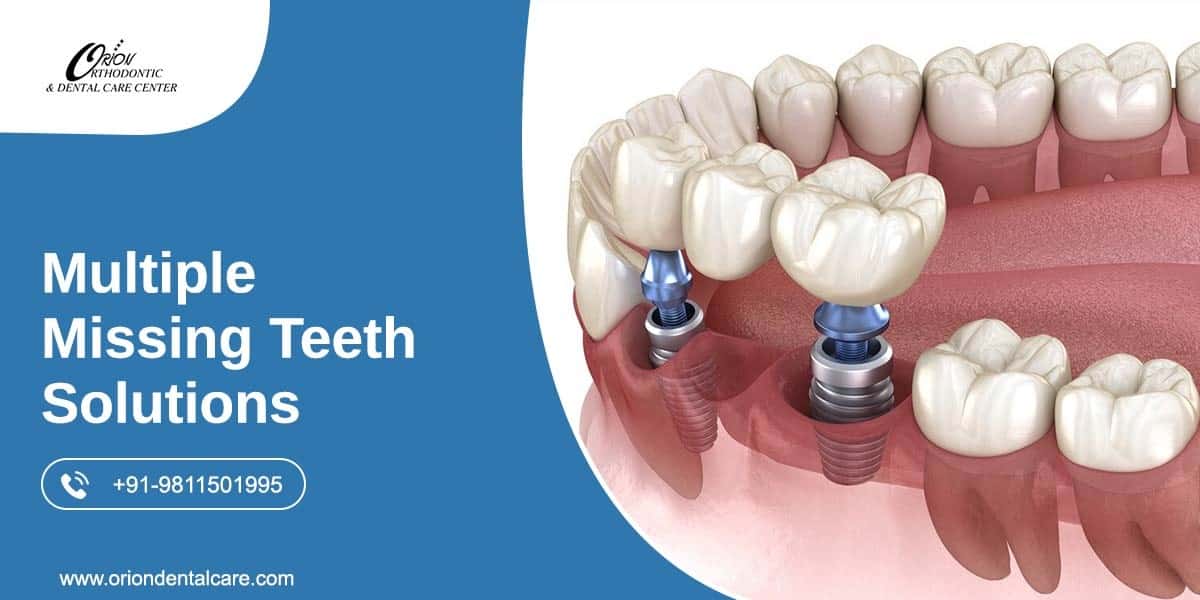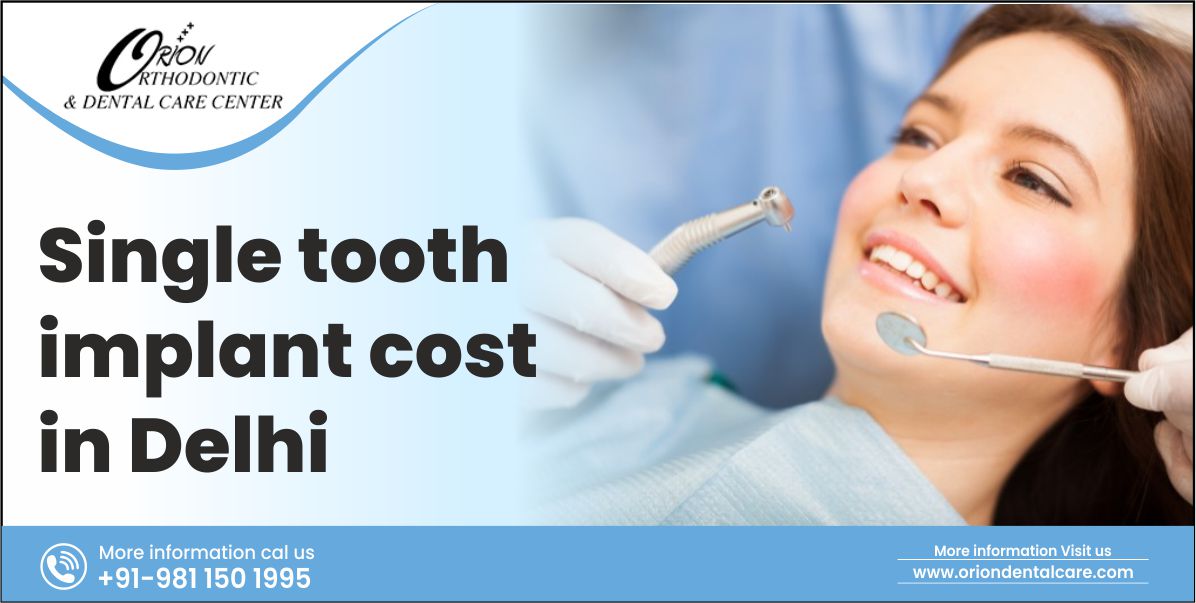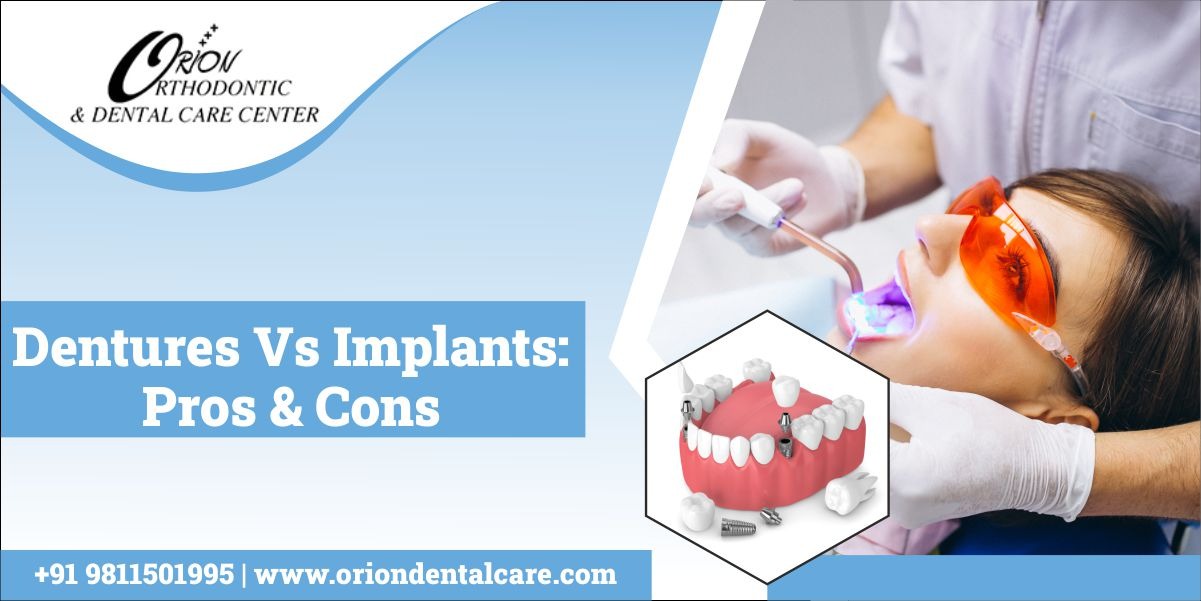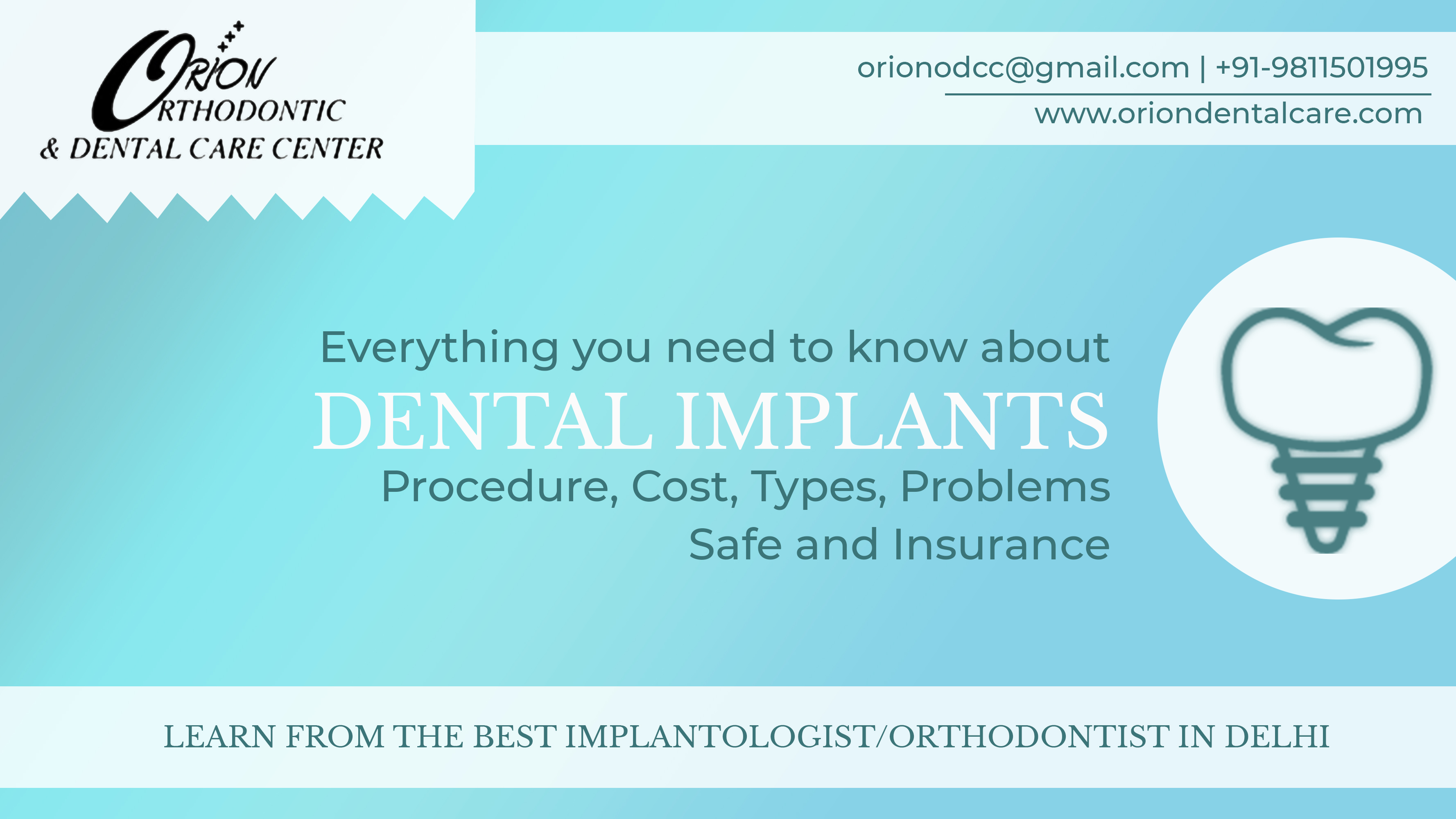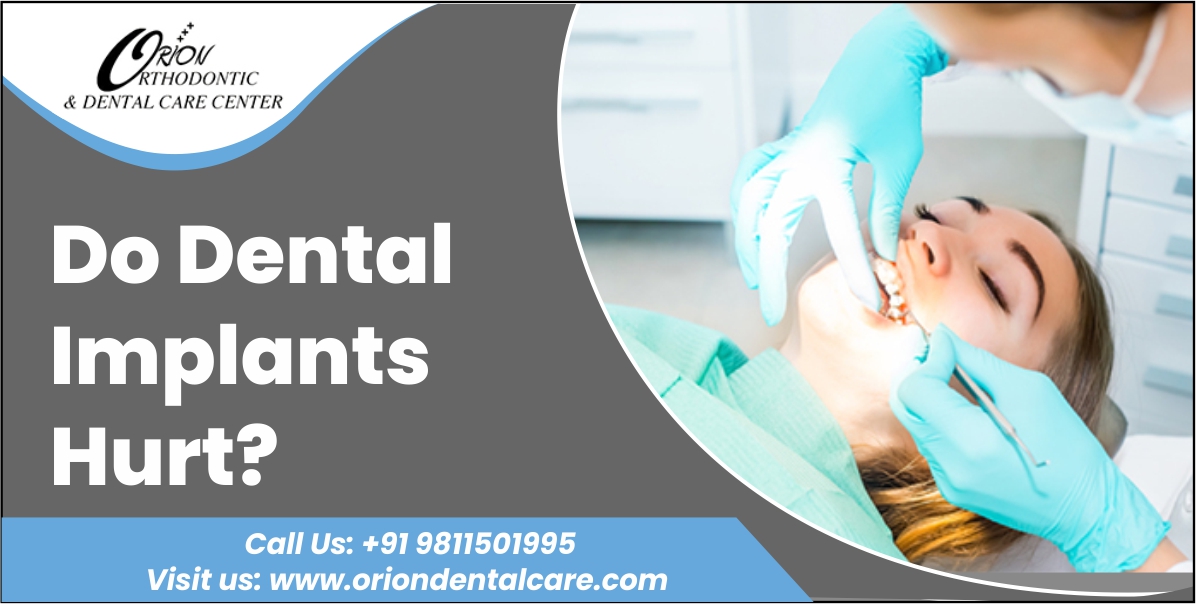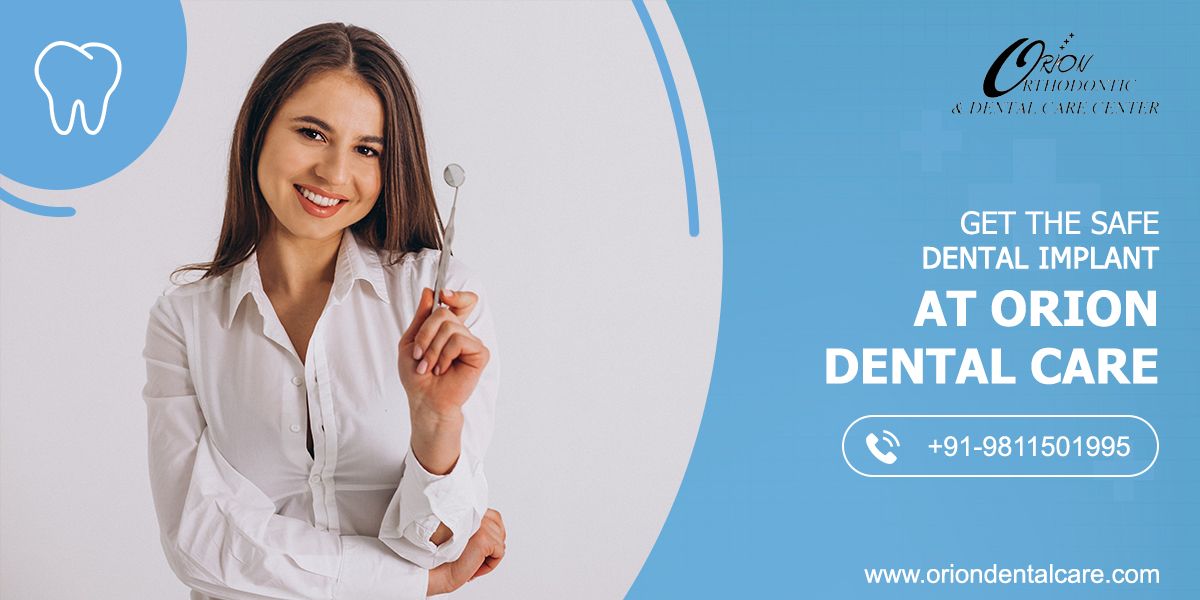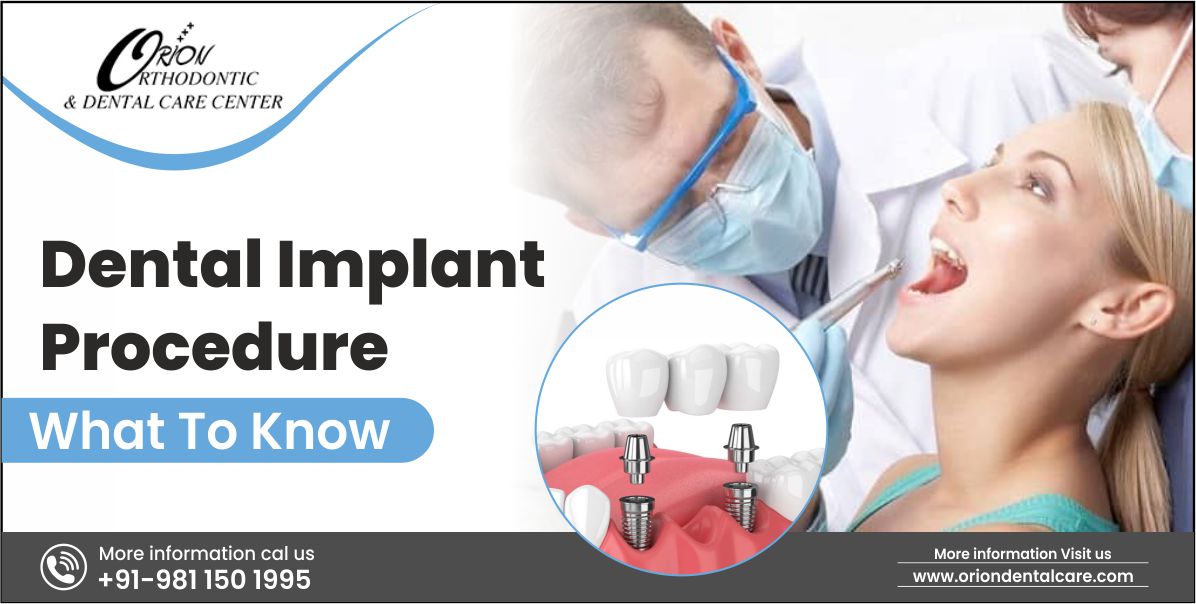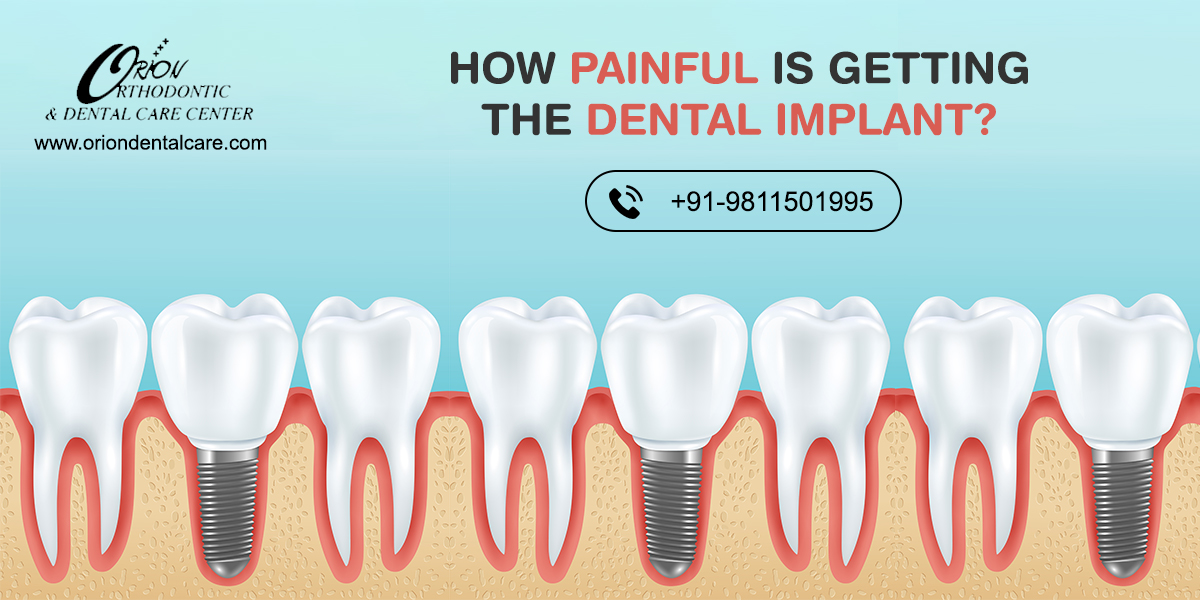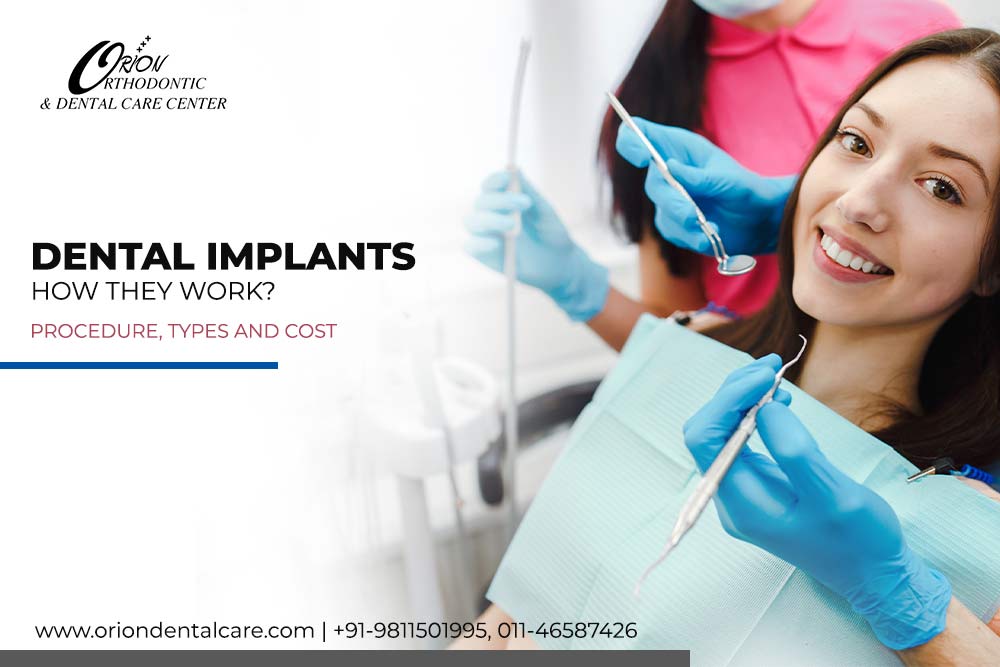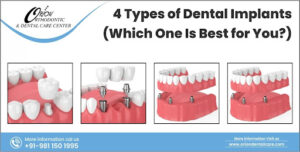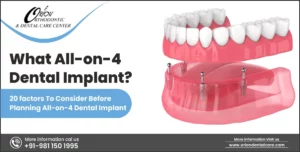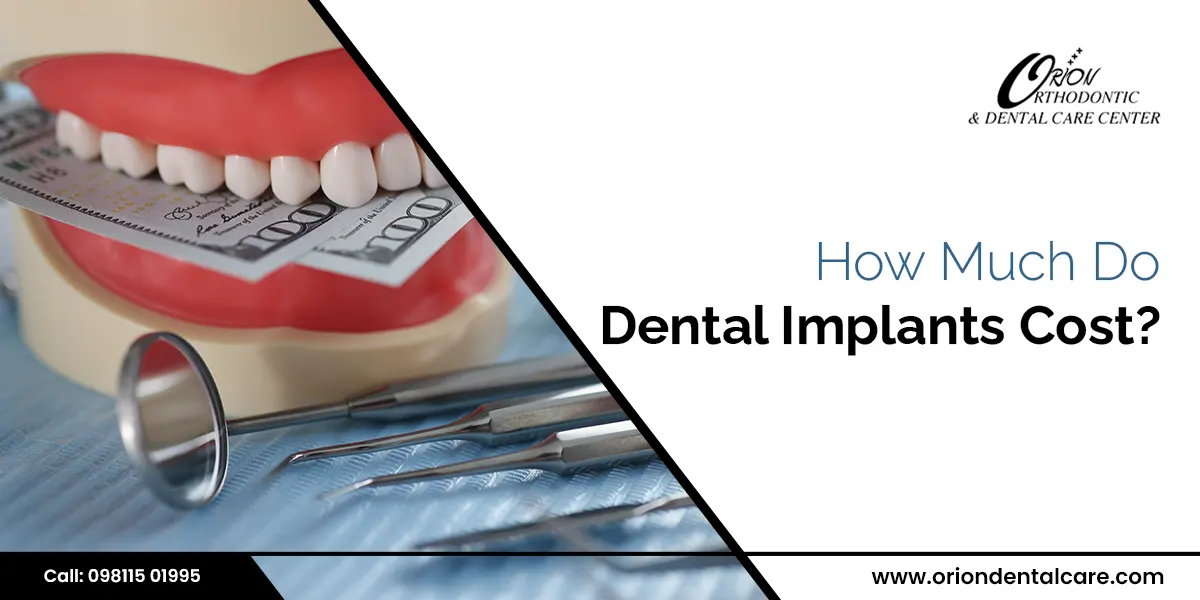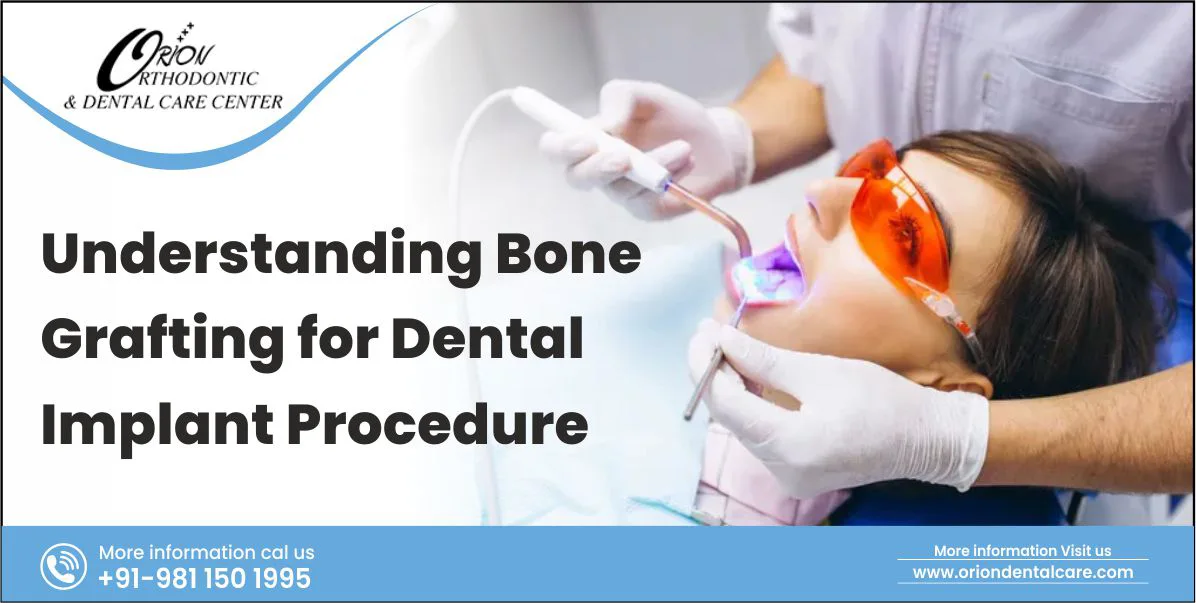Dental Implant in India is a form of permanent tooth replacement created to look like a natural tooth. Dental implants are a great choice if you are concerned about missing teeth and looking forward to improving your smile.
An implant is a small but very sturdy screw made of titanium, which is drilled into the jaw. The parts blend well with the jaw as bio-friendly medical-grade materials are used in the process. After the blending process is completed, a dental prosthesis such as a crown is placed.
Various types of dental implants in India are available according to specific needs.
Orion Clinic provides the opportunity to get one of the best dental implants in India. We have various choices and your dentist will suggest the best choice for you
When a dental crown is placed over the top of the exposed area of the implant, the look is completely natural and becomes functional as a normal tooth. Dental implants are not just for aesthetic purposes and serve for other purposes too, including:
- Smile and appearance
- The loss of even a single tooth can lower your confidence level. When this happens, it may cause a lot of stress that affects your work, personal and social life. It does take a toll on your emotional health.
The types of dental implants in India depend on your need and dental condition. Your dental team will help you to make the best choice.
- Oral health
- Every single tooth is important to maintain dental integrity. Even when one of them is lost, it impedes normal dental function. When a tooth is lost, the neighboring teeth tilt and shift from their normal position to fill the gap. This may happen even with activities such as normal biting or chewing.
- Ease of movement
When all our teeth are intact, we may never realize what it is to miss a single tooth. Regular activities that we often take for granted such as speaking, biting, and chewing, may prove to be arduous tasks if we lose teeth. Owing to this, a lot of people stop eating their favorite foods which may cause nutritional imbalance or deficiency.
Although there are several types of dental implants in India, choosing the right one based on your need and the dental condition is critical
Table of Contents
Feel free to skip ahead if one topic catches your eye:
- Replacing a single tooth – Use a single dental implant
- Replacing several teeth – Use an implant-supported bridge
- Replacing all your teeth – Use an implant-retained denture
- Questions you should ask your dentist before a dental implant?
1. Replacing a single tooth – Use a single dental implant
- A single dental implant is a procedure that is useful in replacing a single tooth.
- When a tooth is lost due to injury, age, or any other condition, this procedure is a good choice.
- This procedure will help in replacing the lost tooth in its entirety, from the root to the crown.
- If you have only one or two missing teeth, then a single dental implant along with tooth restoration is the best choice to retain the structure and functionality.
How is it done?
The process of a single dental implant involves the following steps:
- In the first step, the implant or the dental screw is surgically placed inside the jaw.
- The screw uses a titanium alloy that is bio-friendly and blends with the bone tissue of the jaw.
- After it is placed in position, it amalgamates with the bone structure.
- The process of amalgamation permits it to form an anchorage for the new implant.
- This may take a period of about 3–6 months.
- This interim period can be covered by using a temporary dental replacement over the implant.
- The second step involves the attachment of an abutment that secures the place of an implant.
- The abutment serves as the base on which the dental prosthesis will hold itself.
- The gums heal well after a couple of weeks after which the crown is placed.
- Some dental implants do not require a second step and come fitted with an abutment.
- Depending on your condition, your periodontist will decide the right choice for you.
Advantages of single dental implants
- A single dental implant is more beneficial than a dental bridge.
- It maintains the integrity and health of the neighboring tooth.
- Single dental implants replace the root of the tooth.
- Single tooth implants keep the jaw bone structure intact.
- The bio-friendly material used in single dental implants integrates well with the jaw bone.
- Over time, gums may recede around the dental implants.
- When the gums recede, the metal part of the dental bridge may be exposed.
- The cement that holds the bridge may wash out, predisposing the tooth to decay.
- Single dental implants are a better choice economically and aesthetically in the long run.
Postoperative instructions
Following the procedure, it is very important to follow the instructions from your dental expert team. These include:
- Stop driving for at least 24 hours.
- Leave the implant undisturbed for the first 2 weeks.
- Slight bleeding may be present.
- You will be given a damp gauze to bite on for about 45 minutes.
- The pressure will stop the bleeding.
- Limit yourself to soft foods and avoid chewing on the same side.
- Your gums and face may appear swollen.
- Apply ice packs for about 20 minutes on and off to reduce swelling.
- Take pain medication and antibiotics as advised.
When choosing the various types of dental implants in India available to you, a dentist would be the best choice to make the decision.
2.Replacing several teeth – Use an implant-supported bridge
- An implant-supported bridge is similar to a traditional dental bridge, but it employs titanium screw portions for support. In a traditional bridge, dental crowns are used for support.
- This is a very viable option for those who have multiple missing teeth and prefer fixed dental prostheses.
- The length of the bridge will depend upon the number of teeth that need support.
- Implant-supported bridges are a permanent fixed solution to missing teeth.
- They bridge the dental gap and enable them to restore the structure and function.
- Every single crown that is within the bridge may or may not require an implant.
- Implant-supported bridges may require just one or multiple implants.
- Most often, even if multiple implants are required, they can be fixed in the same appointment.
How is it done?
- The first step is to consult a periodontist who will determine if you are the right candidate for the procedure.
- A dental examination is carried out and a few X-rays of the jaw are taken to determine the type of bridge required.
- An impression of the gums and teeth is taken to ensure the right fit of the bridge.
- A color sample is also taken to make sure that the prosthesis has the most natural look.
- The specifications are sent to the dental laboratory for the preparation of the bridge.
- Once the dental appliance is ready, there is a fitting appointment.
- The fitting is carried out after applying a local anesthetic to the area.
- The underlying teeth are cleaned and fixed with cement.
- The bridge may be uncomfortable at first, but it gets better with time.
- You will be asked to bite and sometimes the bridge may require a few adjustments.
The advantages of an implant-supported bridge include:
- They resemble natural teeth very closely.
- An implant-supported bridge lets you eat and speak as usual.
- The structural integrity of the nearby teeth is not compromised.
- It prevents loss of bone and maintains the jaw structure.
- It averts loosening and damage to the neighboring tooth.
- It helps to restore your natural smile.
- It helps to retain the dimensions of the face and cheek.
- It is cost-effective as compared to a traditional bridge.
- It improves oral health and prevents further deterioration.
After you are fitted with implant-supported bridges, you need to follow certain post-care instructions:
- Avoid chewing hard substances such as bones and shells.
- Maintain good oral hygiene to retain the fit and function of the bridge.
- Avoid chewing on sticky foods that might pull away from your bridge.
- Stay away from tobacco and smoking.
- Clean under your bridge using a flosser to prevent debris build-up in those areas.
- Brush at least twice a day.
- Always remember to floss at least once a day.
- Maintain regular follow-up visits with your dentist.
- Include the right amount of fiber-rich fruits and vegetables.
- Do not chew on caramel, ice, etc., to avoid damage to the dental bridge.
Even though different types of dental implants in India are available, getting the right one is integral to oral health and functioning.
3. Replacing all your teeth – Use an implant-retained denture
The thought of losing all the teeth can be very scary and embarrassing for anyone. Thankfully, there is a way to replace all your teeth – if you are willing to consider it. Sometimes, with age, your teeth may become cracked and cause a bad toothache. There may be cases where a person has lost all or most of his teeth as a result of injury, decay or other reasons.
Such people may be the right candidate for full dental replacement. The type of replacement will depend upon the oral condition. It is important to consult a periodontist who will examine the right method of tooth replacement or prosthesis for you.
Nowadays, dental replacements have provided a number of choices. Replacement choices vary from traditional dentures, full mouth implant-supported bridges to traditional bridges.
If you are considering dental implants for a full mouth, then full arch dental implants may be a good choice. These implants are permanently fixed onto the jaw and are a good choice for a permanent replacement.
If maintained well, they can last years and provide full support and maintain the jaw structure.
How is it done?
- An initial dental assessment includes detailed history taking, oral examination, etc.
- X-rays and a CT scan of the mouth are taken to assess the bone and jaw suitability for dental implants.
- Any teeth that remain will need to be removed to make space for full-mouth dental implants.
- Usually, all-on-4, that is, two implants in the front and two at the back are put in.
- The number of implants may differ according to individual conditions.
- After preparation of the area following proper disinfection, impressions from different angles are taken to fix the framework.
- Depending on the type of implants, one stage or two stages, a separate dental abutment may be needed.
- If placed, the abutment is fixed onto the top of the implant.
- The impressions are labeled and sent to the dental laboratory in order to customize your dental bridge.
- Once your customized dental bridge is ready, you will need to visit the periodontist.
- The new bridge will be placed on top of the implants.
- The bridge provides the basic skeleton for the implants.
- Once the dental implants gel well with the bone tissue, a crown is placed on top to complete the look.
- You will be asked to bite and see how comfortable you get with time over some time.
- Minor adjustments may be needed to get your implant comfortable.
The advantages of a full mouth dental implant are:
- It saves you the trouble of having to take off your dentures, clean and put them on.
- On a long-term basis, it makes sense to get a full-mouth dental implant rather than multiple individual dental implants covering each missing tooth.
- They maintain the structural integrity of the jaw.
- There is no risk of loose dentures or their maintenance.
- Dental implants function just like natural teeth.
- The choice of foods that you can enjoy greatly expands when you have dental implants.
- It takes a while to complete, but it is all worth it in the long run.
- It helps to maintain oral health and prevent deficiency.
- It offers the benefit of permanent dental replacements and easy maintenance.
- Implants have a pretty long life and are made to last a lifetime.
- They keep and maintain the bone structure and prevent resorption and deterioration.
You must keep the following points in mind when you get a full mouth implant:
- Avoid intake of hot foods and liquids.
- Do not have spicy items for a few days.
- Use medication and antibiotics to prevent infection.
- Slight bleeding may be managed by applying pressure.
- Swelling and a little pain with discomfort are expected.
- Be gentle while brushing.
- Allow it some time to feel comfortable – especially with speaking and eating.
- Stick to having soft foods until the area heals completely.
4. Questions you should ask your dentist before a dental implant?
- What is a dental implant?
- What is the kind of dental implant that is right for you?
- What are the advantages and points to note before getting an implant?
- How are dental implants better than dentures?
- Are you the right candidate for dental implants?
- What special instructions do you need to follow to make it last a long time?
Takeaway
Dental implants are a great choice for people concerned about their missing teeth. Consider the option of getting one after making sure with your doctor that it is right for you with the best dentist in Delhi, at Orion clinic. Filling a missing tooth with a dental implant can be one of your life-changing decisions. Visit Orion Clinic for a comprehensive dental implant and get the best dental care.

